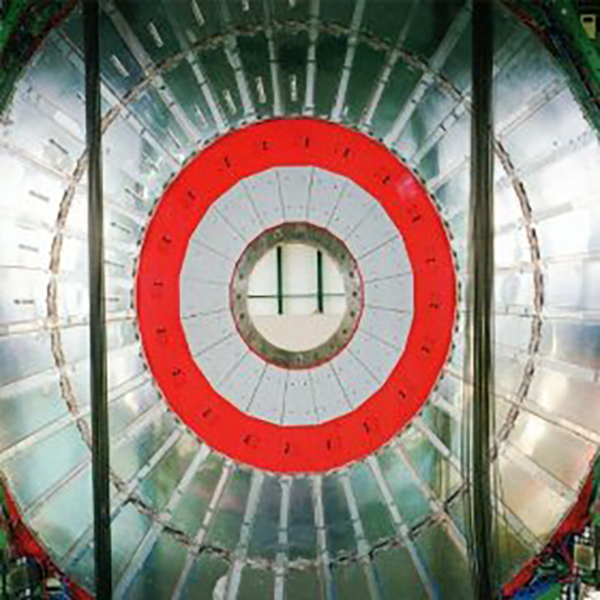
by Tim Owen
October 05, 2011
/ ALBUM
Cline operates in a grey area, seemingly within the parameters of experimental rock, yet clearly in thrall to jazz.
Nels Cline Singers
“Initiate”
(Cryptogramophone)
Nels Cline steps away from his supporting role in the limelight to make a jazz noise with his own trio on “Initiate”, a new double album. Maybe you can’t quite place Cline’s name? He turns up on a fair few recordings (including titles by Jazz Mann favourites Huntsville and Wadada Leo Smith), and he has a long-standing association with the Geraldine Fibbers and Carla Bozulich, for whom he arranged, produced and played on a reworking of Willie Nelson’s album “The Red Headed Stranger”. But chances are you’ll know Cline as guitarist with alternative rockers Wilco, a gig he’s held down since 2004, when he made a significant mark on their landmark album, “A Ghost is Born”.
Away from Wilco, Cline operates in a grey area, seemingly within the parameters of experimental rock, yet clearly in thrall to jazz. He must be a big John Coltrane fan, judging by his contribution to revisions of the saxophonist’s “Ascension” (“Electric Ascension”, 2005, with ROVA) and “Interstellar Space” (“Interstellar Space Revisited”, 1999, with drummer Gregg Bendian), but the influences that emerge on “Initiate” are those of other guitarists: Jim Hall, Thurston Moore, John Scofield and Bill Frisell are all evoked, in a carefully woven synthesis of stylistic inputs.
Cline seems already to have expanded his audience with his 2009 album “Coward”, and “Initiate” looks like an attempt to consolidate those gains. Its two discs - a studio album and a live set - are housed within a gatefold cover that features a striking series of photographs of CERN’s large hadron collider. Both were recorded in Cline’s native California in 2009.
It probably goes without saying, but Cline’s band, the Nels Cline Singers, are no more vocal than Glenn Branca’s Theoretical Girls were female; actually less so, since there was one woman in Branca’s quartet, whereas there are vocals on only a couple of the tracks on this two CD set, and those vocals are wordless. The ?Singers’ are in fact a classic bass, drums guitar configuration, with bassist Devin Hoff alternating between contrabass and bass guitar, and drummer Scott Amen supplementing his kit with live electronics, loops and treatments.
The electronics are a key ingredient here, but for every track like “Scissors/Saw”, which takes Cline deep into studio experimentation in a way reminiscent of recordings by fellow guitarist/producer David Torn, there are those like “Sunken Song”, on which Cline’s dry, lyrical phrasing had me (unsuccessfully) checking John Scofield’s 1990 album “Time on My Hands” for a source melody. The finely tuned acoustic/electric blend of Bill Frisell’s music is another unmistakeable influence. “Fly Fly” loosely evokes Frisell’s playing on Lookout for Hope, particularly in it’s gradual layering to brooding intensity (Cline isn’t as shy as Frisell of dissonance or overload), while “Divining” ends by entwining Frisell-like looped delays with one of those wordless vocals.
The first, studio disc is a patchwork of various moods and styles, which the Singers all make to work together. While “Floored” is liberally splattered by George Clinton’s cosmic slop (or at least Bill Laswell’s take on it), the low-key aura of “You Noticed”, enhanced by some very sensitive electric piano from guest Yuka Honda, leads into the exploratory abstractions of “Red Line to Greenland”. The more conventionally intricate, delicate group interplay of “Grow Closer” and “b86 (Inkblot Nebula)” frame the moody experimentation of “Scissor/Saw”. The following “King Queen”, by contrast, has some of the suspended animation and urgent forward momentum of dance music. “Zingiber” takes yet another tack, entwining ripples of electro-acoustic guitar in strands of rich bowed bass and dreamy vocalese. “Mercy (Procession)” is a slow builder that takes the album to an effective climax, and the closing “Into It (You Turn)” is a brief voyage into wide-stream electronic ambience, with Yuka Honda on synth.
The live album, as might be expected, is generally looser in structure, and lacks some of the first album’s lightness of touch. “Forge” is a moody, bruising opener, while “Fly Fly” has its intense crescendo. With no letup, “Raze” folds some razor-wire solo guitar improv into passages of truly bruising riffage. Yet all this machismo finally yields to an elegant version of Carla Bley’s “And Now, the Queen”, which is handled with absolute respect and a delicacy of touch that the trio carry over to the discursive “Blues, Too”, which is dedicated to Jim Hall but explores some unfamiliar country improv byways. “Thurston Country” is a loose jam on which Cline takes the back roads through Sonic Youth territory, closing with an unaccredited cover of Sonic Youth’s “New Hampshire” that quotes the tune’s melodic head explicitly. (Of his original version on “Coward”, Cline told Jam Band: “It’s a tribute to Thurston. It’s got a Thurstonian riff, the so called verse riff which is blatant Thurston, it’s in seven. I don’t think Sonic Youth plays in seven anymore.” *) The final track is a funky, jauntily muscular vamp on Weather Report’s “Boogie Woogie Waltz”, on which alt. rock trio Deerhoof guest but make little evident impact, all adding percussion to Scott Amen’s brawny thump. The driving force is always Cline, his guitar tone something like Jim Hall might have achieved, if he’d worked with the BBC’s Radiophonic Workshop.
* http://www.jambands.com/features/2009/02/22/of-cowards-and-continuations-with-alex-and-nels-cline
blog comments powered by Disqus